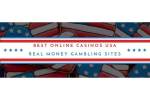Gambling equals big bucks
Did you hear that MGM Resorts International — purveyors of the M Life customer loyalty program — is suing a medical marijuana company calling itself “M’Life” on grounds of copyright infringement?
In addition to the usual copyright complaints, MGM is alleging the association with medical marijuana is tarnishing the gambling giant’s hard-won reputation.
So, on the one hand, you have a company that produces a product that some claim is addictive, designed to alter a customer’s normal state of mind and is potentially harmful to a person’s health … and on the other hand, you have a medical marijuana company.
Bazinga.
See, that’s just the kind of insensitive joke the gambling industry doesn’t want “opinion elites” (their term!) such as me to make. In fact, they’ve got a whole outreach campaign designed to get our minds right.
Dubbed “Get to Know Gaming,” the campaign made a splashy public announcement at last week’s G2E convention. For the first time, researchers delved into the economic impact of all gambling — including tribal casinos and gambling equipment manufacturers — to get a comprehensive picture of the impact of gambling in America.
And it’s big: $240 billion (with a big old capital “B”). To put that in perspective, it’s equivalent to the state of Nevada’s entire general fund budget. For 37 years.
The industry also directly or indirectly creates 1.7 million jobs in nearly 1,000 casinos in 39 states, more jobs than the airline industry — and with far fewer complaints about people reclining in their seats. And it pays $38 billion in taxes to federal, state and local governments, including a goodly share of that Nevada budget I mentioned.
And now, in addition to cynical newspaper columnists, the industry wants politicians to learn the facts.
Why not the general public? They’re apparently already there: Opinion research commissioned by the industry found that regular folk are pretty accepting of casinos, view the industry favorably and appreciate its contributions.
Besides, politicians are the ones who write regulations and impose taxes. And sometimes, those policymakers can harbor “largely very archaic views” of the industry, said Jan Jones Blackhurst, executive vice president of communications and government relations for Caesars Entertainment and a former policymaker (she was Las Vegas mayor for eight years).
One of those archaic views: gambling taxes will fix all your problems. “They’re looking for you to be in business to feed government,” Jones Blackhurst said.
In fact, that sentiment is true even here in Nevada; when any public need is discussed, it’s not long before somebody suggests raising the gambling tax. If a gambling tax increase were on the November ballot instead of The Education Initiative, it would probably pass with 65 percent support and hardly a second thought.
That disturbs some in the industry, who feel the public isn’t aware of its contributions. “We can do even more, but we need a policy environment that allows us to innovate, reinvent and reinvest in local communities,” said Sara Rayme, senior vice president of public affairs for the American Gaming Association, the group that commissioned the economic impact report.
That’s why the awareness campaign won’t stop anytime soon, according to Alan Feldman, executive vice president of MGM Resorts. “Just like diversity isn’t a one-year program … we need to tell our story year after year, generation after generation,” he said.
It was mildly surprising to hear gambling industry leaders talking about ways to gain influence with lawmakers in a state where — it could be argued — the industry has too much influence. While Nevada lawmakers may not know all the details, mention casino taxes and it won’t be long before the hackneyed “golden goose” analogy flies from one of their mouth holes.
Bottom line? The industry does plenty of good, and fears about rising crime and social ill effects resulting from casinos are generally overstated. Las Vegas wouldn’t exist without casinos and the jobs they supply. And a fair tax rate leads to more and better investment. But there’s some legitimate danger in giving the industry too generous a “policy environment,” in which elected officials believe what’s good for gambling is good for Nevada. Because that’s not always so.
Steve Sebelius is a Las Vegas Review-Journal political columnist who blogs at SlashPolitics.com. Follow him on Twitter (@SteveSebelius) or reach him at 702-387-5276 or ssebelius@reviewjournal.com.























